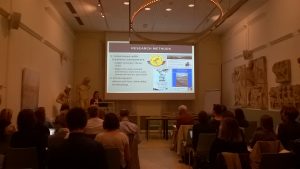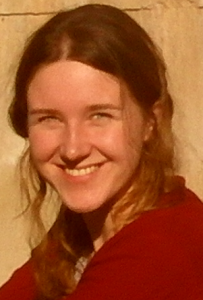An ethnographic study of energetic healing practices in the Netherlands.
Spiritual beliefs and practices are mostly considered an individual matter in the Netherlands. Since the trend of marginalization of institutionalized religion from the 1960s onwards, finding and experiencing meaning has largely become a personal and eclectic process resulting in a wide variety of new religious and spiritual movements and practices. Additionally, it appears that for many, spirituality has also become an important tool to increase the quality of life and create or maintain wellbeing, resulting in a wide spectrum of courses and alternative healing practices that adopt ideas and practices from spiritual traditions. This paper is a qualitative study of a particular type of alternative therapy, here called energetic healing. This healing practice is characterized by an energetic approach and also frequently contains elements of spiritual traditions. Three such therapeutical practices will be examined for this study. The focus lies on the experiences and motivations of the participants (or help-seekers, if you will), rather than the healers.  Data is acquired using a combination of in-depth interviews and participant observation, and is analyzed using (informed) grounded theory. This research is an attempt to understand what the psychosomatic role or meaning of energetic healing is, if any, and considers the possibility that these therapy practices are not merely a healing practice for the help-seekers involved but also an individual meaning-making system. This, in turn, could mean that alternative healing can serve as an alternative not only for regular healthcare but in some cases also for institutionalized religion.
Data is acquired using a combination of in-depth interviews and participant observation, and is analyzed using (informed) grounded theory. This research is an attempt to understand what the psychosomatic role or meaning of energetic healing is, if any, and considers the possibility that these therapy practices are not merely a healing practice for the help-seekers involved but also an individual meaning-making system. This, in turn, could mean that alternative healing can serve as an alternative not only for regular healthcare but in some cases also for institutionalized religion.
Lisette van de Burgwal is a Research Master’s student at the Universit y of Amsterdam department of Theology and Religious studies. She has a BA in Religious Studies of the same university, with a semester at the Boğaziçi University in Istanbul. Her travels to Iran, India, Israel, Palestine, the United States, and other
y of Amsterdam department of Theology and Religious studies. She has a BA in Religious Studies of the same university, with a semester at the Boğaziçi University in Istanbul. Her travels to Iran, India, Israel, Palestine, the United States, and other
countries have incited her academic interest in different forms of religion and spirituality. Her main research interests include the relationship between psychology and religion, especially conflicting perspectives between the two domains. This includes interpretations of “anomalous experience” (an alternative for the suggestive “religious experience” and “symptom” or “psychopathological experience”) and common ground and conflicts between religious and secular healing practices.
